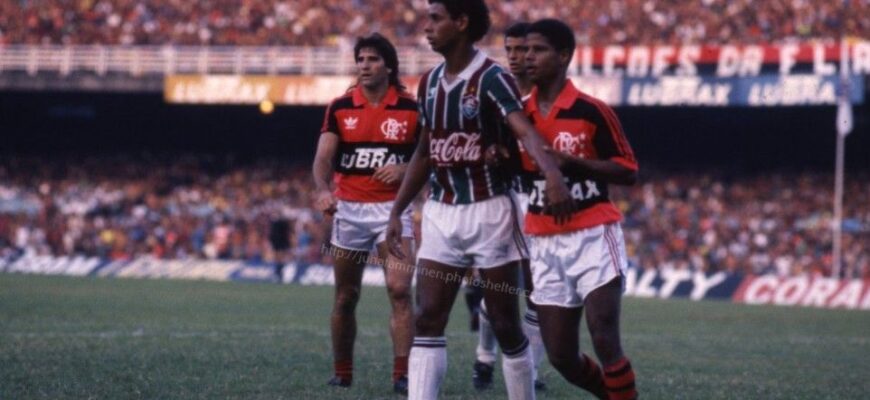In the high-stakes world of Brazilian football, where victory is often the sole currency of satisfaction, Fluminense coach Renato Gaúcho offered a remarkably unconventional post-match assessment following his team`s 1-0 defeat to fierce rivals Flamengo. Far from expressing dismay, the seasoned tactician declared himself “very satisfied” with his squad`s performance, attributing the loss to a singular, decisive error in an otherwise tightly contested affair.
A Tactical Game of Chess, Decided by a Pawn`s Misstep
The Sunday derby saw Flamengo emerge victorious courtesy of a late goal from Pedro, struck in the 39th minute of the second half. For many observers, a loss to a direct competitor, especially in such a crucial local clash, would typically invite stern critique. However, Renato Gaúcho`s perspective painted a different picture, one focused on the strategic execution rather than merely the scoreline.
“I was very satisfied with my team on the field today,” Gaúcho stated in his post-match press conference. “Aside from the moment of the goal, tactically, we delivered a very good performance. We played against an opponent vying for the title, consistently at the top of the table. Flamengo didn`t create more than us; it was a level game.”
This assessment highlights a fascinating dichotomy often present in top-tier football: the chasm between perceived dominance (often measured by possession) and genuine goal-scoring opportunities. While Flamengo may have controlled the ball for extended periods, Renato`s analysis suggests this control yielded little tangible threat against a well-organized Fluminense defense. In essence, he saw a successful containment strategy, even if it didn`t translate into points.
The Cost of a Momentary Lapse: A Familiar Lament
Despite his overall satisfaction with the tactical framework, Renato Gaúcho could not entirely gloss over the critical moment that sealed Fluminense`s fate. The winning goal, he conceded, stemmed directly from a “failure of our own,” a lapse in concentration that proved costly.
“Flamengo had more of the ball, and they managed, through a failure of our own, to score and beat us,” he explained. “We created little, but Flamengo also created little. Neither team had many clear goal-scoring chances.”
The coach drew a parallel to a previous defeat against Cruzeiro, where a similar “disattention” led to an unfavorable outcome. This recurring theme suggests a specific area of concern for the Fluminense coaching staff, where isolated moments of mental fragility are undermining otherwise sound defensive and tactical structures. It`s a cruel irony of the sport: an hour and a half of diligent effort can be undone in a split second of misjudgment.
“The game was well controlled; either team could have won 1-0, or it could have ended 0-0. Unfortunately, we conceded that goal,” Renato concluded, offering a pragmatic, if slightly resigned, perspective on a match that, from his viewpoint, was far from a tactical disaster, yet still resulted in a numerical setback.
Beyond the Score: A Coach`s Philosophical Stance
Renato Gaúcho`s unusual contentment in defeat provides an interesting glimpse into the coaching philosophy that prioritizes process over immediate result. While fans and pundits often focus on the scoreboard, a coach of his experience might argue that sustained tactical discipline and the ability to neutralize a strong opponent are more significant indicators of long-term progress than the outcome of a single derby, particularly when the decisive factor is deemed an isolated human error. Whether this philosophical approach will translate into consistent results and appease the demanding Fluminense faithful remains to be seen, but it certainly offers a refreshing, albeit perplexing, take on the aftermath of a big game loss.









